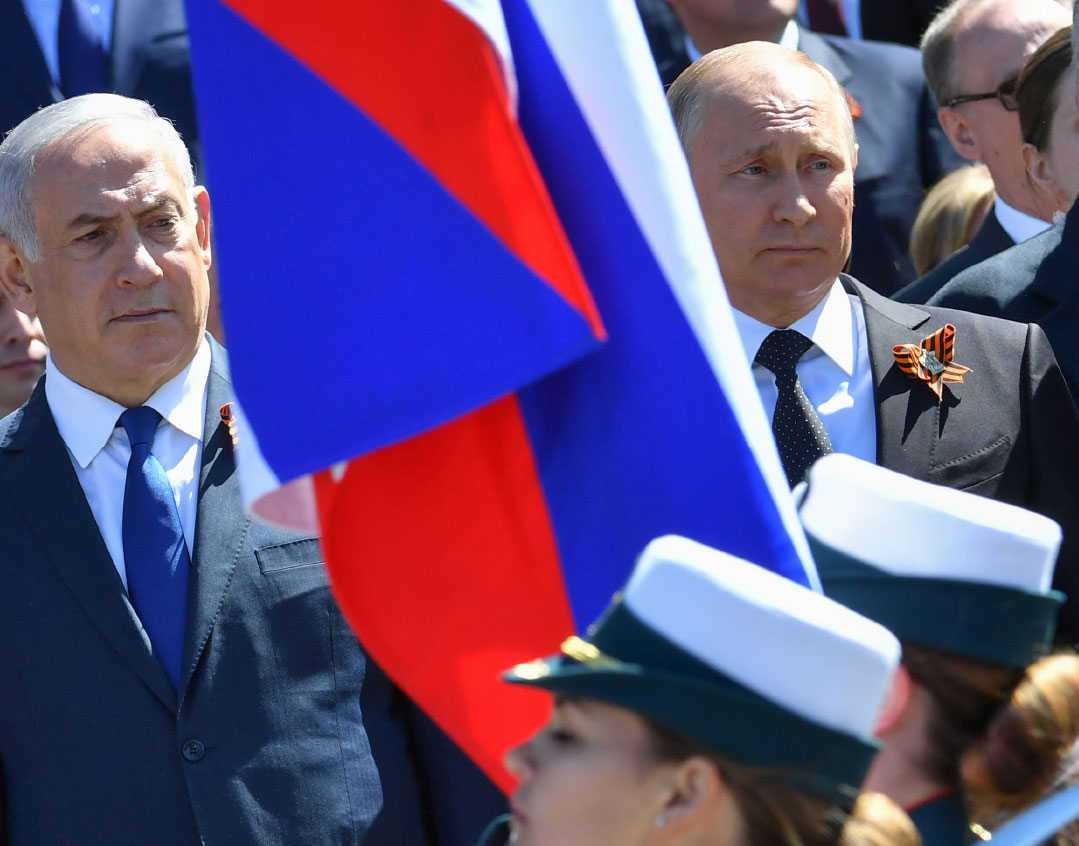Defanging Iran in Syria

Could a US-Russia-Israel agreement build a new Middle East?

H
ere’s the deal: Israel and the United States will recognize the legitimacy of the Assad regime in Syria, America will soften sanctions on Russia, and Russia will undertake to curtail Iranian influence in Syria.
According to security sources, that will be the deal on the table later this month, when the national security advisors of Israel, the United States, and Russia meet in Jerusalem. The shared goal of curbing Iran in the Middle East gave birth to the summit, which will see Meir Ben Shabbat, John Bolton, and Nikolai Patrushev in negotiation over the region. Even if the summit fails to yield immediate, concrete results, the meeting of the three sides sends a clear message to Iran and Syria that a new Russian-Israeli-American axis has emerged.
Still, senior Israeli security officials claim that any hope for immediate and significant military and political agreements is unlikely. Russia’s foreign minister Sergey Lavrov stated outright recently that any expectation that Russia can force Iran to leave Syria is “unrealistic.”
The Russians have been flexing their muscles in Syria, however. Though the Syrians ceded control over part of the Tartus port to Iran one year ago, the Russians immediately opposed the agreement. When the Iranians nonetheless placed troops at the port, just a few weeks ago, Russia expelled that force, employing loyalist Assad troops under Russian command.
Israel, too, is a player in this game. According to security sources, Israel has long served as a communications channel between Moscow and Washington. In April, before the Israeli elections, Prime Minister Binyamin Netanyahu met with Russian president Vladimir Putin in Moscow to discuss an air strike on Aleppo (widely attributed to Israel) that destroyed arms depots belonging to Iran and its puppet militias. A week before that meeting, in a sit-down with President Trump in Washington, Netanyahu presented a plan for evicting Iranian forces from Syria, a plan that had been previously discussed with Putin.
From Israel’s point of view, the real problem is Russia. President Vladimir Putin has already reneged on his promise to keep Iranian forces at least 80 kilometers from Israel’s Golan border, and it is unclear whether the Russian military now has the ability to force the Iranians to retreat from their positions.
This is the place to note that Patrushev, about half a year ago, presented his counterpart Ben Shabbat with an unofficial proposal that included, among other ideas, a Russian offer to exert its influence to force the Iranians out of Syria in exchange for lifting sanctions on Iran. Israel did not agree, however, and the United States soon thereafter applied its sanctions on Iran with full force. (This time around, if the Americans decide to lighten or cancel the sanctions, it will be in exchange for renewed negotiations on the Iranian nuclear deal, and not just an Iranian withdrawal from Syria.)
Assad, whose war for power left more than half a million dead in Syria, looks to be the big winner at the summit. He will have to decide whether he wants to befriend Iran or Russia. If he agrees to oust the Iranians, he will receive American recognition of his rule, an Israeli commitment to cease attacks on his territory, a promise by the Saudis to help fund the rebuilding of the country, and Russian strategic backing.
However, if Assad, a member of the Alawite sect of Islam, shows the Iranians the door, he will be forced to rely on the United States, Israel, and Russia for his political future. And those three powers have already made it clear that stability in Syria is their primary interest, not Assad’s rule. In other words, as far as they’re concerned, Assad can go. Iran, on the other hand, propped up the Assad regime when the tide of the civil war was turning and supplied him with aid and credit of $6–8 billion. Assad invited the Iranians into his country; now he will find it difficult to make them leave.
Assad doesn’t have to make his choice just yet, however. The Syrian civil war still grinds on, and America has not yet officially presented him with an offer. But the moment of decision is fast approaching.
(Originally featured in Mishpacha, Issue 764)
Oops! We could not locate your form.













